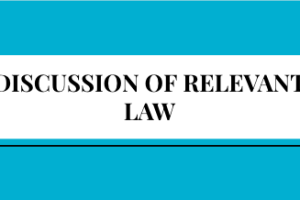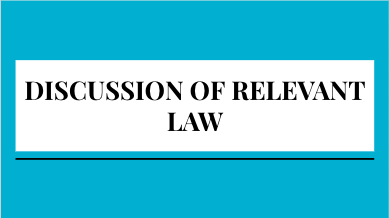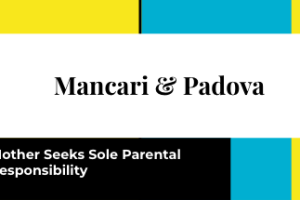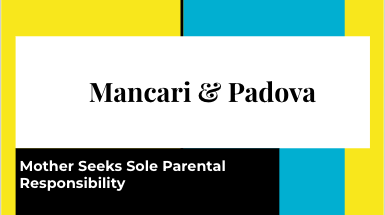- · 4742 friends
Court grants mother sole parental responsibility in case involving family violence

Mancari & Padova [2022] FedCFamC2F 1593 (22 November 2022)
The parties are in dispute over final parenting orders. The Court, in resolving this dispute, considered significant and sustained family violence during the relationship and after separation by the Father. Evidence by way of recordings of verbal threats to harm and kill Mother in presence of child were likewise considered.

Facts
The parents never married. There is dispute as to when the relationship and cohabitation commenced, the Father asserting that the parties entered into a relationship in 2011, and the Mother asserting the parties commenced cohabitation in 2012. The Father asserts that the parties separated in January 2015. The Mother asserts that separation took place on a final basis on 22 August 2014.
On 7 February 2019, orders were made by consent providing for the Father to spend time with X supervised by a commercial supervision agency, B Contact Centre, each alternate Thursday from 3 pm until 6 pm. Orders were made for preparation of a Family Report, though this was later superseded by orders for a single expert’s report, and setting the matter down for an interim hearing on 21 June 2019. The Father sought the following orders, with original expression: the parties have equal shared parental responsibility and the child spend time with the Father from 9am to 5pm each alternate Saturday unsupervised for a period of 3 months from the commencement of these orders. During the hearing, the Father’s Counsel clarified that the weekend time with X proposed in order 7 of the Father’s orders was intended to be each alternate weekend, with the Wednesday to Thursday time being each week, so as to achieve five nights per fortnight as stated in order 6.
The Father gives evidence that during a heated argument on 15 December 2014 the Mother tore the shirt he was wearing and bit his left pectoral, drawing blood. The police attended the home and the Mother was issued with a Provisional Apprehended Domestic Violence Order (‘ADVO’) naming the Father and X as protected persons and containing only the mandatory orders that the Mother not assault, molest, harass, threaten, or otherwise interfere with the protected persons, not engage in any other conduct that intimidates the protected persons, and not stalk the protected persons.
The Father's counsel, however, conceded to the fact that the Mother was exposed to that sort of toxicity in her home was entirely unacceptable; that the Father has some difficulties with his personality. Ms Shea, counsel appearing for the Independent Child's Lawyer, submitted that the Father’s attitude underlying his past behaviours was still present as shown by his evidence in his supplementary affidavit completed by him the day before the hearing started, repeating his assertions that the Mother was alienating the child from him and that his past behaviours were the fault of the Mother rather than his fault in consequence of her deliberately provoking him, accommodating in his blank statement that he denied any allegation that he threatened to kill anyone. She also referred to the Father’s recent emails from February 2021 that included his words about X “The older he gets, the more and more he will hate you” and from his email of 10 March 2021 “Me and my family and X are totally against your actions. That must change for his benefit.”
Issue
Whether or not the Mother should have sole parental responsibility over the child.

Applicable law
Analysis
The Mother was not shaken at all on her evidence in cross-examination, whereas the Father was shown during cross-examination to have been seriously inaccurate in important parts of his evidence in chief. The Father’s approach throughout his cross-examination was to start by attributing his bad behaviours to deliberate provocations by the Mother or others, that it was all their fault, and then when that attitude was picked apart, on each occasion he would bluster and backtrack. When the Father was caught out in conflict between his evidence in chief and his evidence in cross-examination he on occasion immediately blamed the quality of his legal representation, specifically at the time of preparation and completion of his trial affidavit, and only when again pressed did he accept responsibility for his own sworn evidence.
There is no evidence before the Court whatsoever to ground an allegation by the Father that the Mother has taken any active steps to interfere in the relationship between Father and child other than to act protectively of X at all times whilst still seeking to foster and encourage a relationship between Father and child. There is a very real possibility that if given the opportunity presented by unsupervised time with X, the Father will make good on his threats to turn X against his Mother as a living instrument of the Father’s desire for revenge upon the Mother.
Conclusion
All previous parenting orders in relation to the child X born in 2012 are discharged. The Mother has sole parental responsibility for X. X should live with the Mother.







